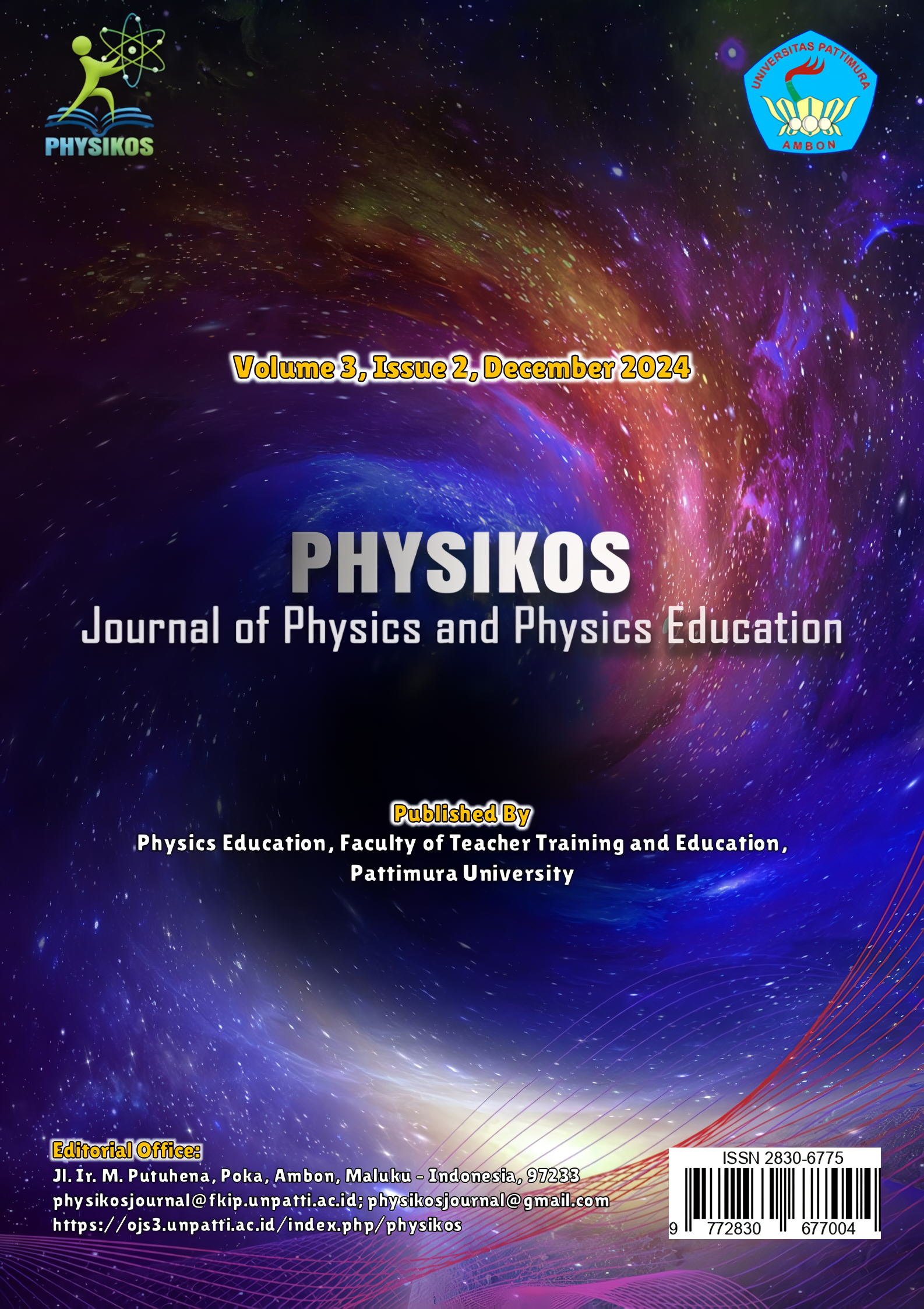Peningkatan Penguasaan Konsep Gelombang Bunyi Berdasarkan Gaya Belajar Peserta Didik Melalui Model Problem-Based Learning
Abstract
This study aims to improve students' ability to master physics concepts on sound waves material in terms of students' learning styles through the Problem-Based Learning (PBL) model. The learning styles that are the focus of this study consist of visual, auditory, and kinesthetic. This research is pseudo-experimental research with a quantitative approach. One Group Pre-test Post-test Design is a research design used to apply the PBL model to determine the extent of improvement in mastery of the sound wave concept based on the learning style of students. The population in this study were students of class XI IPA SMA Negeri 42 Central Maluku, with a sample size of 24 people. The instrument used to analyze the learning style of students consists of test questions, questionnaires, and Learner Worksheets (LKPD). Based on the analysis carried out, it can be seen that before the application of the PBL model, overall students were failing qualifications with the average Pre-test obtained by students being 12.34. Based on these results, the number of students whose learning styles are classified as visual is 9 people (38%), auditory is 7 people (29%), and kinesthetic is 8 people (33%). After applying the PBL model by taking into account the learning styles of students during the teaching and learning process, the average LKPD achievement score in the visual group was 87.78, auditory was 85.71, and kinesthetic was 88.50, and was in good qualification. These results were then further reviewed through the Post-test, with an average achievement score of 80.48 with good qualifications. Based on these results, the N-Gain test was then carried out and the average score achieved was 0.8 with high qualifications. Thus it can be concluded that the PBL model can improve students' mastery of concepts on sound wave material based on students' learning styles.
Downloads
Copyright (c) 2024 Novita Sahuleka, Arman Kalean, Vederico Pitsalitz Sabandar

This work is licensed under a Creative Commons Attribution 4.0 International License.





